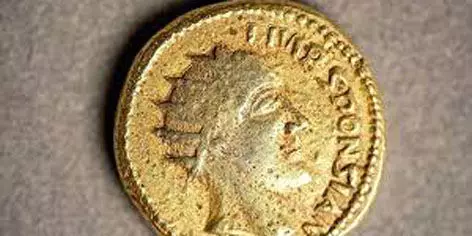
Ancient Roman coins confirm the existence of emperor Sponsian
text_fieldsNew Delhi: A new study confirms that Roman emperor Sponsian was not a fictitious person.
However, there was nothing to prove his existence except an assemblage of coins found in Transylvania (Romania) in 1713.
The coins were largely considered fake because of their crude strange designs and jumbled inscriptions, according to a report in India Today.
The study published in the journal PLOS ONE reveals that emperor Sponsian ruled Roman Dacia which was an isolated gold mining territory overlapping today's Romania.
The territory was found to be cut off from the rest of the Roman Empire in about 260 CE.
The wear and tear on the coin according to researchers suggested that the coin had once been in use.
"They are very unlike regular Roman coins in style and manufacture, with various enigmatic features including bungled legends and historically mixed motifs, and have long been dismissed as poorly made forgeries," the paper said.
The team from University College London also found minerals on the coins indicating that they remained buried in soil for a long period of time, before being exposed to air again.
The minerals are found to be cemented in place by silica which occurs when coins are in soil for over a long period of time.
The lead author Professor Paul N. Pearson said the emperor Sponsian was brought back from obscurity proving that he ruled Roman Dacia when the empire was best with civil wars.
Emperor Sponsian, according to the researchers, may have been a local army officer who was forced to take over power to protect people of the area from chaos and civil war.
Only four coins, found from the 1713 hoard, are known to have survived the ravages of time






